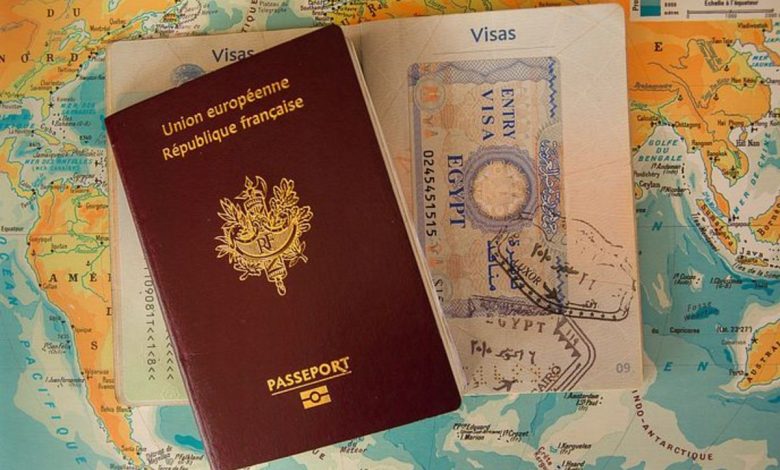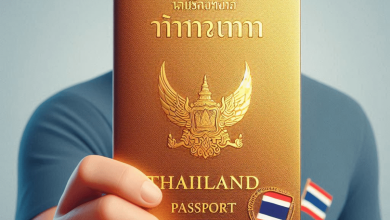Thailand Retirement Visa FAQs: Everything You Need to Know

Are you considering retiring in Thailand? The Thailand Retirement Visa is one of the most popular options for expats looking to live in this tropical paradise. While the benefits are numerous, the application process and requirements can be confusing. To make your retirement journey easier, we’ve compiled the most frequently asked questions (FAQs) about the Thailand Retirement Visa to help you better understand the process and decide if it’s right for you.
1. What is the Thailand Retirement Visa?
The Thailand Retirement Visa, officially known as the Non-Immigrant O-A Long Stay Visa, is designed for individuals aged 50 and over who wish to reside in Thailand for an extended period of time. The visa allows you to stay for up to one year, and it is renewable annually as long as you meet the ongoing requirements.
Unlike a typical tourist visa that only grants a short stay, the Retirement Visa offers the convenience of staying in Thailand long-term without the need for frequent visa runs or multiple renewals. It’s a great option for retirees who want to spend their later years in Thailand enjoying its lifestyle, culture, and affordability.
2. Who is eligible for the Thailand Retirement Visa?
To be eligible for the Thailand Retirement Visa, you must meet the following criteria:
-
Age: You must be at least 50 years old.
-
Financial Requirements: You need to show proof of sufficient financial means, which can be one of the following:
-
800,000 Thai Baht in a Thai bank account for at least two months before applying.
-
A monthly income of 65,000 Thai Baht (approximately $1,800 USD), or a combination of both a bank deposit and income.
-
-
Health Insurance: You must have valid health insurance that covers you in Thailand with a minimum coverage of 40,000 Thai Baht for outpatient care and 400,000 Thai Baht for inpatient care.
-
Clean Criminal Record: A police clearance certificate from your home country showing that you have no criminal history.
-
Valid Passport: Your passport must be valid for at least 12 months from the date of application.
3. How long can I stay in Thailand with a Retirement Visa?
The Thailand Retirement Visa allows you to stay in the country for one year. After the first year, you can apply for a visa extension, and as long as you continue to meet the requirements, you can renew the visa annually. There’s no limit to the number of times you can renew the Retirement Visa, so long as you remain compliant with the rules.
This is a huge benefit for retirees, as it eliminates the hassle of frequent visa runs or the need to leave the country regularly.
4. What are the financial requirements for the Thailand Retirement Visa?
The financial requirements are one of the most important aspects of obtaining a Thailand Retirement Visa. You can fulfill the financial requirement in one of two ways:
-
800,000 Thai Baht in a Thai bank account: This amount must be in a Thai bank account for at least two months before your visa application. The bank account must be in your name, and you must provide a bank certificate from the Thai bank to prove the balance.
-
Monthly income of 65,000 Thai Baht: You’ll need to show proof of a monthly income from a reliable source (e.g., pension, social security, or other income). The income proof must be in the form of an official letter from your bank or other relevant institution.
In some cases, you can combine both the bank deposit and income options to meet the requirement.
5. How do I apply for a Thailand Retirement Visa?
To apply for a Thailand Retirement Visa, you’ll need to submit your application at a Thai embassy or consulate outside of Thailand. Here’s a general step-by-step process:
-
Gather Required Documents: These include your passport, completed visa application form, proof of financial stability (bank statements or income verification), police clearance certificate, health insurance, passport-sized photos, and any other documents required by the embassy.
-
Submit Your Application: Visit the Thai embassy or consulate in your home country or a neighboring country and submit your application along with the required documents.
-
Wait for Approval: The embassy will process your application, which usually takes about 3 to 5 business days. Once approved, you’ll receive a Non-Immigrant O-A Visa.
-
Enter Thailand: After receiving the visa, you can enter Thailand. The visa will be valid for 90 days from the date of entry.
-
Apply for Extension: Once in Thailand, you can apply for an extension at the Immigration Office to convert your visa into a one-year extension, which can then be renewed annually.
6. Can I work in Thailand with a Retirement Visa?
No, the Thailand Retirement Visa is specifically for retirees, meaning it does not allow you to work in Thailand. If you want to work or engage in any business activities, you will need to apply for a different visa, such as a Non-Immigrant B Visa for business or employment purposes.
However, if you wish to volunteer or engage in activities like teaching (without receiving a salary), that may be permissible under certain circumstances, but it’s always advisable to consult with immigration authorities for clarification.
7. What happens if I don’t meet the financial requirements?
If you do not meet the financial requirements at the time of applying, your Retirement Visa application may be rejected. However, you can still apply for the visa in the future once you meet the necessary financial criteria.
If you’re unable to maintain the required financial standards (e.g., if your bank balance falls below the required 800,000 Thai Baht), you may risk losing your visa status. It’s essential to ensure that you maintain the necessary funds in your bank account or demonstrate consistent monthly income.
8. Do I need to report to immigration during my stay?
Yes, holders of a Thailand Retirement Visa are required to report their address to Thai immigration every 90 days. This is a standard procedure for all long-term visa holders in Thailand. Failure to comply with the 90-day reporting requirement can result in fines or complications with your visa status.
You can complete this report in person at the local immigration office or use online services in some provinces. The process is usually quick and straightforward.
9. Can I extend my Thailand Retirement Visa?
Yes, the Retirement Visa can be extended annually, as long as you continue to meet the financial and health insurance requirements. You’ll need to apply for an extension before your current visa expires. The extension process is similar to the initial application and involves submitting proof of financial stability, insurance, and any other required documentation.
10. What are the pros and cons of the Thailand Retirement Visa?
Pros:
-
Long-term stay: The visa allows you to stay for up to one year, with the possibility of annual renewals.
-
Low cost of living: Thailand’s affordable living costs make it an attractive destination for retirees.
-
Quality healthcare: Thailand has world-class medical facilities at a fraction of the cost of Western countries.
-
Beautiful surroundings: Whether you prefer the beach, mountains, or city life, Thailand offers a variety of landscapes and lifestyles to suit all tastes.
-
Expats community: Thailand has a large and active expat community, making it easier to meet like-minded people.
Cons:
-
Strict financial requirements: You need to show significant funds in a Thai bank account or prove a steady monthly income.
-
Health insurance requirement: You must provide proof of insurance coverage, which can be an additional expense.
-
90-day reporting: You must report your address to immigration every 90 days, which can be inconvenient for some expats.
Conclusion
The Thailand Retirement Visa is an excellent option for retirees looking to live in a tropical paradise. With its long-term stay options, affordable cost of living, world-class healthcare, and beautiful landscapes, Thailand offers a quality of life that many expats find ideal for their retirement. By understanding the application process and requirements outlined in this guide, you can begin your journey to retiring in Thailand with confidence.
If you have further questions or need help navigating the process, it’s always a good idea to consult with a visa specialist or immigration lawyer to ensure a smooth experience. Happy planning for your retirement in Thailand!









